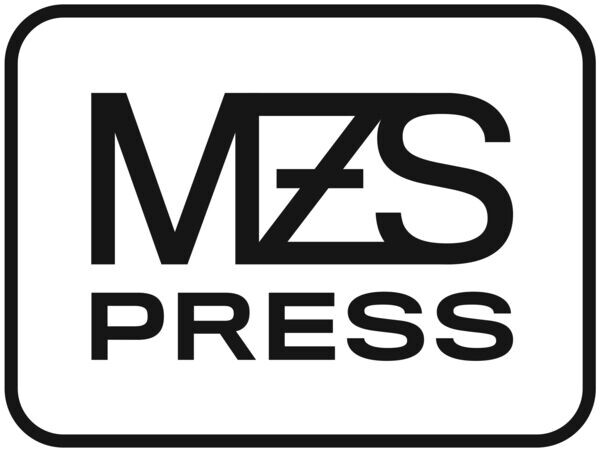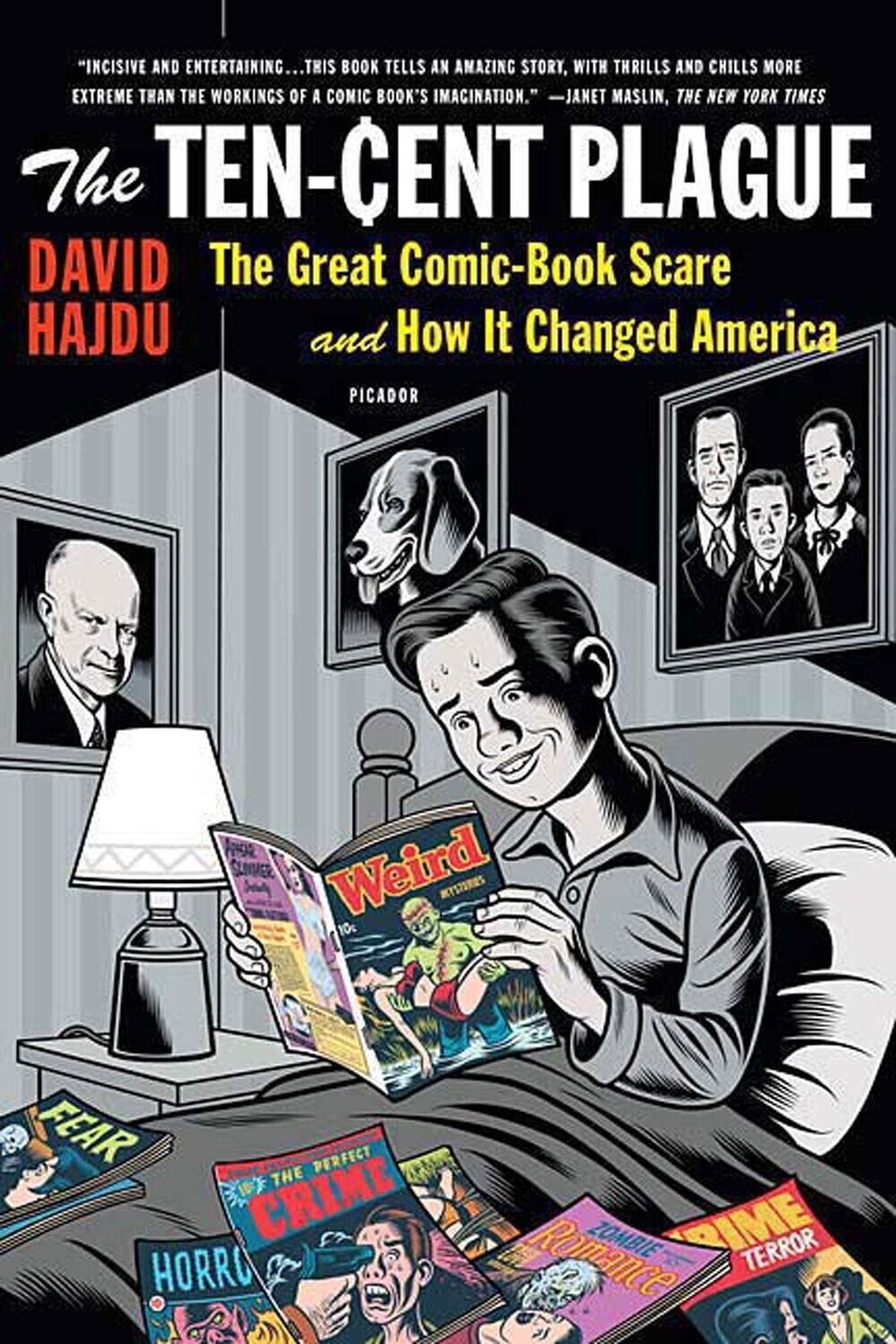

The Arts Bookstore of the Internet
Created by Matt Zoller Seitz
Directed by Judith Carter
“If you only read the books that everyone else is reading, you can only think what everyone else is thinking.”
Haruki Murakami
Photo courtesy Getty Images via Unsplash
The Ten-Cent Plague: The Great Comic Book Scare and How It Changed America (Paperback, USED)
In the years between World War II and the emergence of television as a mass medium, American popular culture as we know it was first created--in the pulpy, boldly illustrated pages of comic books. No sooner had this new culture emerged than it was beaten down by church groups, community bluestockings, and a McCarthyish Congress--only to resurface with a crooked smile on its face in Mad magazine.
The story of the rise and fall of those comic books has never been fully told -- until The Ten-Cent Plague. David Hajdu's remarkable book vividly opens up the lost world of comic books, its creativity, irreverence, and suspicion of authority.
In the years between World War II and the emergence of television as a mass medium, American popular culture as we know it was first created―in the pulpy, boldly illustrated pages of comic books. No sooner had this new culture emerged than it was beaten down by church groups, community bluestockings, and a McCarthyish Congress―only to resurface with a crooked smile on its face in Mad magazine.
When we picture the 1950s, we hear the sound of early rock and roll. The Ten-Cent Plague shows how -- years before music -- comics brought on a clash between children and their parents, between prewar and postwar standards. Created by outsiders from the tenements, garish, shameless, and often shocking, comics spoke to young people and provided the guardians of mainstream culture with a big target. Parents, teachers, and complicit kids burned comics in public bonfires. Cities passed laws to outlaw comics. Congress took action with televised hearings that nearly destroyed the careers of hundreds of artists and writers.
The Ten-Cent Plague radically revises common notions of popular culture, the generation gap, and the divide between "high" and "low" art. As he did with the lives of Billy Strayhorn and Duke Ellington (in Lush Life) and Bob Dylan and his circle (in Positively 4th Street), Hajdu brings a place, a time, and a milieu unforgettably back to life.
REVIEWS
“A vivid and engaging book.” ―Louis Menand, The New Yorker
“David Hajdu, who perfectly detailed the Dylan-era Greenwhich Village scene in Positively 4th Street, does the same for the birth and near death (McCarthyism!) of comic books in The Ten-Cent Plague.” ―GQ
“Who knew? The right was focused on the Red Menace and the left on the Red Scare. But, if you want to understand what was really going on in the mad, mad, mad world of the 1950's you should read David Hajdu's hilarious and harrowing account of The Great Comic Book Scare. Hajdu's tale is lurid, absurd, existential, weird, and scary, and contains real-life superheros and supervillains, and there is nothing funny about it.” ―Victor Navasky, author of Naming Names
“THE TEN-CENT PLAGUE is about the best account yet of comics in America, an instant classic of cultural history.” ―Geoffrey O'Brien, author of Sonata for Jukebox
“Every once in a while, moral panic, innuendo, and fear bubble up from the depths of our culture to create waves of destructive indignation and accusation. David Hajdu's fascinating new book tracks one of the stranger and most significant of these episodes, now forgotten, with exactness, clarity, and serious wit, which is the best kind. He illuminates the lives of his protagonists -- from pompous, on-the-make censors to cracked comic book geniuses -- with his own graphic powers, as well as his intense intellectual curiosity. The book is a rarity, vividly depicting a noirish 1950's America but without a trace of irony or nostalgia.” ―Sean Wilentz, Professor of History, Princeton University
“Marvelous . . . a staggeringly well-reported account of the men and women who created the comic book, and the backlash of the 1950s that nearly destroyed it....Hajdu's important book dramatizes an early, long-forgotten skirmish in the culture wars that, half a century later, continues to roil.” ―Jennifer Reese, Entertainment Weekly
ABOUT THE AUTHOR
David Hajdu is the music critic for The Nation and a professor at the Columbia University Graduate School of Journalism. Before joining The Nation in January 2015, he served for more than ten years as the music critic for The New Republic. He is the author of three books of narrative nonfiction and and one collection of essays: Lush Life: A Biography of Billy Strayhorn (FSG, 1996), Positively 4th Street: The Lives and Times of Joan Baez, Bob Dylan, Mimi Baez Fariña and Richard Fariña (FSG, 2001), The Ten-Cent Plague: The Great Comic Book Scare and How It Changed America (FSG, 2008), and Heroes and Villains: Essays on Music, Movies, Comics, and Culture (2009). Lush Life, Positively 4th Street, and Heroes and Villians were all finalists for the National Book Critics Circle Award and won the ASCAP Deems Taylor Award. The Ten-Cent Plague was a finalist for the Eisner award, and the editors of Amazon named it the #1 Best Book of the Year on the arts. Hajdu is married to the singer and actor Karen Oberlin and is the father of three. He lives in Manhattan with his family.
- Publisher : Picador; First Edition (February 3, 2009)
- Language : English
- Paperback : 434 pages
- ISBN-10 : 0312428235
- ISBN-13 : 978-0312428235
- Dimensions : 5.5 x 0.81 x 8.2 inches
Copies are USED and in GOOD condition, with some scuff marks on cover and spine, possible remainder marks and all clean interiors.
About Our Store
MZS.Press is the online arts bookstore founded by author, critic, and filmmaker Matt Zoller Seitz and Directed by Judith Carter. It offers new, used, signed, collectible, and rare books on film, TV, music, photography, and the visual arts. The store was launched in 2019 on a different platform and has expanded to incorporate arts books published by MZSPress's private imprint: titles currently include Seitz's The Deadwood Bible: A Lie Agreed Upon and Dreams of Deadwood, about the HBO Western, and Walter Chaw's A Walter Hill Film.
Our deepest wish is to promote, encourage, and distribute work by small presses, academic presses, and individuals. Extraordinary work tends to get swallowed up on giant platforms like Amazon and Barnes & Noble. The titles featured here are personally selected by a group of curators and advisors, including Seitz and an array of critics, artists, journalists, educators, publishers, and arts mavens who are known for their ability to suss out what Seitz's jazz musician dad liked to call "the good sh*t."
In Honor of the greatest auteur of our time, Judith is using one of her favorite quotes by him.
"Every day, once a day, give yourself a present"
David Lynch (January 20, 1946-January 15, 2025)

About the Partners

Matt Zoller Seitz
Critic, Author, Filmmaker, MZS Press Creator
Matt Zoller Seitz is the Editor at Large and film critic of RogerEbert.com; Features Writer for New York Magazine and Vulture.com, Contributing Writer for D Magazine and Texas Highways as well as finalist for the Pulitzer Prize in criticism. His writing on film and TV has appeared in Sight and Sound, The New York Times, Salon.com, The New Republic and Rolling Stone. Seitz is the founder and original editor of the influential film blog The House Next Door, now a part of Slant Magazine.
Seitz has written, narrated, edited or produced over a hundred hours’ worth of video essays about cinema history and style for The Museum of the Moving Image, Salon.com and Vulture, among other outlets such as Texas Highways and AARP. His five-part 2009 video essay Wes Anderson: The Substance of Style was spun off into the hardcover book The Wes Anderson Collection. This book and its follow-up, The Wes Anderson Collection: Grand Budapest Hotel were New York Times bestsellers.
Other Seitz books include the New York Times bestsellers The Sopranos Sessions and Mad Men Carousel; TV (The Book), The Deadwood Bible: A Lie Agreed Upon, The Wes Anderson Collection: The French Dispatch and the new The Wes Anderson Collection: Asteroid City. He is also an interviewer, moderator, and film programmer who has curated and hosted film and TV presentations for the Museum of the Moving Image, IFC Center, San Francisco's Roxie Cinema, and other venues. In October 2024 he brought the legendary filmmaker Oliver Stone back to Dallas for a historic return to the city and the Texas Theatre, considered the biggest film event of Dallas in 2024 by Dallas Observer!
Judith Carter was in the Upscale and Luxury Hospitality Industry for most of her life. In 2004 she had a beautiful baby boy with Special Needs and put the pause on her career until 2017 to dedicate herself to him and then others, assisting and volunteering as a legal advocate ensuring the best medical care, evaluations and educations for Special Needs children and their families.
Matt and Judith were family friends for over 20 years. She was there with her family in support when his wife Jen passed away suddenly in 2006. Then just 6 weeks later while Matt was in Dallas; he and his Father, Dave, and Step-Mother, Genie, were there as support, when Judith was alone and her son received the first of many diagnoses that changed the trajectory of their lives. So it made sense in the turbulent year of 2020, Matt asked Judith to take over running the online store that has become MZS.press. The rest as they say is, "Their"-story.
